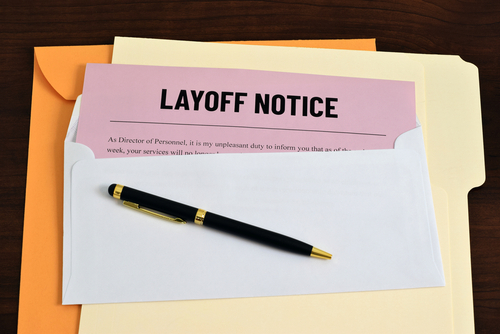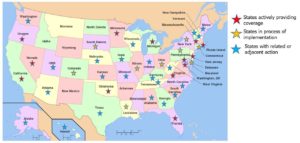The Federal Judiciary Is Broken — But Not for the Reason You Think
By Jennifer Bard
Recent events, including the discovery that Justice Thomas has been accepting luxury vacations from and selling real estate to a billionaire, and the Fifth Circuit’s finding in Alliance for Hippocratic Medicine v. FDA that federal courts have the power to modify the conditions under which the FDA can approve a drug, may seem separate. But they’re not. Both involve a threat to our constitutional government and both highlight the need to shield all federal decision makers from entities with billions at stake and a fiduciary interest in increasing the value of their company for the benefit of shareholders. And while issues of influence affecting Supreme Court Justices attract the most attention, the factors that make Justices targets extend across the entire federal judiciary.
- Fiduciary Duties and Billions at Stake
Most people reading this will have heard of the Supreme Court’s “Shadow Docket,” in which it makes important decisions about individual rights without a full opportunity for both sides to be heard. All of these cases originate in lower federal courts. But far less is known about the role of the federal judiciary in making decisions about commercial interests that could easily be described as the “Boring Docket.” These cases have no Constitutional implications, but rather resolve disputes in which billions of dollars are at stake either between private companies or between private companies and the federal government. This is most evident in cases involving the validity of patents. In November 2022, for example, the Court agreed to hear a patent dispute between pharma companies over Amgen’s cholesterol drug Repatha. At stake for all three companies is their share of a “monoclonal antibodies market, which includes big-selling treatments for cancer, high cholesterol, COVID-19 and many other conditions,” which was worth over $180 billion in 2021. The Supreme Court has also agreed to resolve a dispute between Apple and Caltech involving a $15 billion supply agreement.
It is the Court’s power to make decisions of significant economic impact that makes it a target for influence. We tend to be squeamish in talking about this reality in relation to the federal bench, but it would be foolish to imagine that the kind of activity that goes on in plain sight in states where judges are elected does not exist there as well. Indeed, as disclosure requirements for the federal judiciary increase, these relationships are substantial enough that last year “Chief Justice of the Supreme Court John Roberts, in his year-end review of the federal judiciary, said the report’s findings indicate a ‘serious problem of inadequate ethics training.’”
- The Human Drive to Reciprocate
It’s easy to dismiss these concerns as absurd-do we really think a federal judge, let alone a Supreme Court Justice, would change their vote because someone has taken them out to dinner or given them a lift on a public plane? Maybe not. But the rest of the government is made of mainly honorable public servants as well yet federal law bans all federal employees except the judiciary from accepting “anything that has monetary value that you obtain for less than ‘market value.’” Similarly, many hospitals now prohibit their employees from taking anything from pharmaceutical reps. The issue isn’t that a physician would harm a patient would harm a patient in return for a doughnut or a pen, it’s that when presented with two equally effective drugs, they are more likely to favor the gift giver’s product over a competitor.
Scientists call this phenomenon reciprocity. Studies show that “[d]ecision-making during repeated social interactions involves a dynamic process of mutual reciprocity.” This innate desire to respond “in kind” and to be “fair” transcends the size or type of gift and extends to any unforced human kindness. It is exactly because this feature of human programming makes us so vulnerable to AI manipulation.
3. Federal Judges Are Inherently Vulnerable to Those Seeking to Influence Them
Being a federal judge at any level is very isolating. All appreciate that once sworn in, many people seek them out who would not otherwise do so. In a world of social media and instant communication, any judge would be reasonable in worrying that anything they say may be widely distributed and taken out of context.
But these factors are magnified for Supreme Court Justices who become national public figures overnight and often must move to a part of the country where they have no existing ties. For example, Justice Souter quite clearly stated that one of the reasons leading him to resign was because he did not like living in Washington, D.C. It is this wariness, however, that makes them so vulnerable to influence from people they meet in settings like Supreme Court Historical Society cocktail parties. Another opportunity for introductions come with invitations to speak, which are often funded by private donors and include lavish entertainment and private jets.
Also, even before they take the bench, the social circles of many Judges, and almost all the Justices, are quite narrow and defined. Each of them is justly proud of their affiliation with schools or groups, which, again, brings those with similar credentials within the circle of familiarity. A study from Florida found a direct relationship between the amount a plaintiff’s lawyer recovered and their being an alumni of the same school as the judge. Once on the bench, there are few opportunities for Justices to meet new people. This is makes it easy to know who has regular access and make an approach from that direction.
And once in the company of people they trust, Supreme Court Justices trend towards the sociable. That doesn’t mean all federal judges are nice or even good people, but all of them are able, at least before being nominated, to control their behavior to the extent that the words used to describe them are stereotypical to the point of parody. See, for example, these descriptions of Justices Gorsuch, Kagan, Alito, Kavanaugh Roberts, Thomas, Sotomayor, Coney-Barrett, Brown Jackson, Scalia all use the same word: “affable.” (Justice Ginsberg had an affable husband).
4. Inherent Discrepancies in Income
Another thing that makes the Supreme Court Justices, and indeed all federal judges, vulnerable to influence is the vast income disparity between them and the lawyers who appear before them, their peers in law firms, and most certainly the executives and board members of the companies those lawyers represent. The issue isn’t whether federal judges get paid “enough,” it is that they can’t be paid enough to even match the lifestyle of their peers, let alone enjoy the luxuries available to the super rich. Many eligible candidates without other sources of income can’t afford to be federal judges in the first place and others leave the bench to provide for their family. It will never be possible to pay judges enough to erase this disparity, and this is why term limits would do a lot to open up the bench to more diverse candidates.
II. The New Danger from Judicial Recission of Federal Agency Decisions
As vulnerable as federal justices are now to influence by those with business interests, the door opened by the Fifth Circuit to give them authority to reverse an agency decision on the basis of a disagreement not with the process of the decision making, but with its result makes the problem far worse. By that I mean, it is one thing to criticize the process of seeking out opposing viewpoints, but quite another to criticize the weight that the experts at the FDA gave them in making a final decision.
There is no obligation for a federal agency to gain consensus of all stakeholders before making a decision because doing so would be impossible. There will always be strong arguments on both sides and the losing party will always claim that theirs weren’t being “sufficiently” considered. Allowing such claims creates an incentive for every person and company disadvantaged by a government decision to seek judicial review and reversal.
Our judiciary could not withstand this pressure. In fiscal year 2021, the federal government spent about $637 billion on contracts for everything from fighter jets to, yes, toilet seats and screw drivers. This amount is dwarfed by the value of government decisions about things like granting a patent, approving a drug, or banning a consumer product. It is because the decision making authority is so valuable to so many people that the federal government has a robust and comprehensive infrastructure to prevent influence.
The finality of these decisions once made is part of the structure. No matter how close the call or how upset the loser, the only way for someone outside the government to reverse an agency decision is to identify a failure in the process.
Over the past few years, judges have stretched the definition of “process objections” to the far limit of plausibility. But, until now, no federal court has given itself the authority to evaluate whether the agency had reached the “right” result. That is because doing so crosses a line that leads to anarchy and chaos. If such action were possible, every defense contractor who has lost a contract or drug company denied a patent would be obligated to seek judicial review as often as possible. Even worse, competitors would be obligated to make their best efforts at reversing decisions that benefit their rivals. It would bring commerce to a standstill and flood the courts with unending requests for re-evaluation.
This Current Crisis Over Approval of Mifepristone Is Not Just About Abortion
Allowing a federal court to reverse any agency decision based on a review of the strengths and weaknesses of the supporting evidence opens a door that can never be closed. As with the Aesop fable of the wasp and the snake, any assurance by the Court or its apologists to limit the judicial coup unfolding here can’t be kept and isn’t worth the paper on which it is not written. I urge the Biden Administration to consider their response to this judicial coup as something outside the usual battles that, no matter how hard fought, are based on mutual respect for the rule of law. If the Supreme Court does not completely repudiate the ability of any federal court to substitute its judgement for that of agency subject matter experts who are following the process rules established by Congress, then it has abandoned its commitment to the rule of law that supports not just our liberties but also our abilities to protect the free economy on which those liberties depend.






